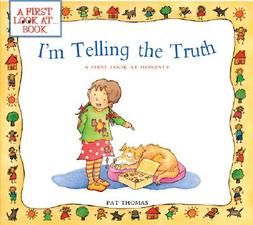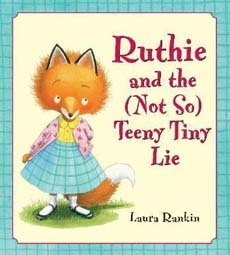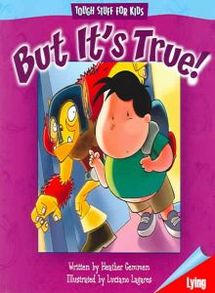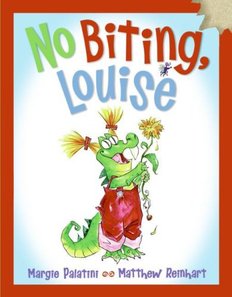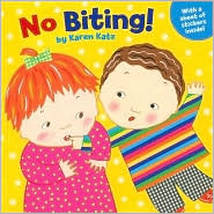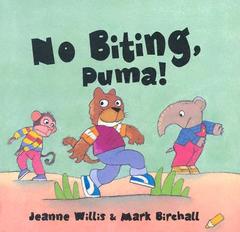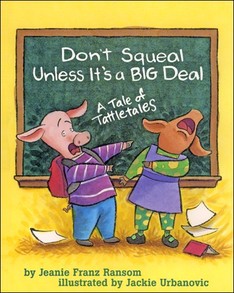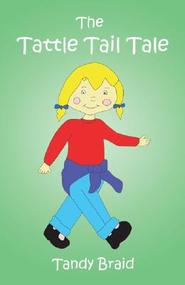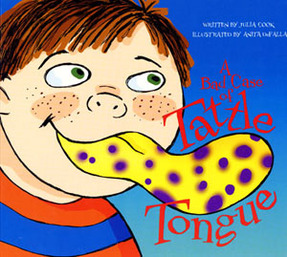Lying
_ Children
often lie in order to get out of punishment for something that they
have done. Lying also takes place when a child makes up stories from
their own imagination. In truth, children may lie for several different
reasons on different occasions. Although this may upset you, please take
comfort in knowing this is a perfectly common behavior in children
through the age of six. Preschoolers often cannot distinguish the
importance in being honest. Instead of becoming discouraged, take this
as an opportunity to discuss with your children the value of telling the
truth.
Suggestions:
-Set a distinct rule at home about telling the truth
-Do not try to catch your child in a lie, because it could cause the child to tell an even bigger lie
-Discuss with your child that it has hurt your feelings that they have lied
-Commend your child when he or she tells the truth (through oral expression or rewards)
-Make sure to practice honesty yourself
Suggestions:
-Set a distinct rule at home about telling the truth
-Do not try to catch your child in a lie, because it could cause the child to tell an even bigger lie
-Discuss with your child that it has hurt your feelings that they have lied
-Commend your child when he or she tells the truth (through oral expression or rewards)
-Make sure to practice honesty yourself
Biting
_ Before
achieving verbal skills, young children often bite because they want
something that another child has. This is their way of communicating
what they want. Once reaching the age of three years old, biting is an
intentional way to convey their anger. This anger may come from a big
change in their life, or simply from an argument that has escalated
during class. Most often, biting situations take place when children are
with their peers. It becomes less frequent as they get older because
they are better able to express how they feel orally, rather than
physically. The first step is working towards understanding why your
child is choosing to bite to begin with.
Suggestions:
-Establish a set rule in the household and explain to your child the reason for that rule
-Discuss better ways to express their feelings
-Do not bite your child in return as a punishment for them biting
-Commend your children when they express their feelings in a healthier way
Suggestions:
-Establish a set rule in the household and explain to your child the reason for that rule
-Discuss better ways to express their feelings
-Do not bite your child in return as a punishment for them biting
-Commend your children when they express their feelings in a healthier way
Tattling
_ The
reason for a child tattling could be attributed to several different
possibilities. One of which, is to test the rules to see if you will
enforce them. Another possibility is the need for attention and to tell
the adult he or she was actually not at fault during a disagreement. One
of the most common reasons is because many young children lack the
ability to problem solve on their own. They may have had an altercation
with another student and were unable to solve the dispute themselves.
Another common reason for tattling is because a child does have a
reasonable concern. It is our responsibility as an adult to allow the
children to voice when there are times in which they need immediate
help.
Suggestions:
-Encourage children to speak up when someone's safety is at risk
-Brainstorm with your children the type of events that need attention right away, verses simply tattling
-Assist children in developing their own problem-solving skills without the help of an adult (through oral expression)
-Assume that it is something important before your child voices concerns to you, so that you have the ability to give them a respectful response either way
-Know that at the age of a preschooler, children are not able to handle all situations by themselves
Suggestions:
-Encourage children to speak up when someone's safety is at risk
-Brainstorm with your children the type of events that need attention right away, verses simply tattling
-Assist children in developing their own problem-solving skills without the help of an adult (through oral expression)
-Assume that it is something important before your child voices concerns to you, so that you have the ability to give them a respectful response either way
-Know that at the age of a preschooler, children are not able to handle all situations by themselves
